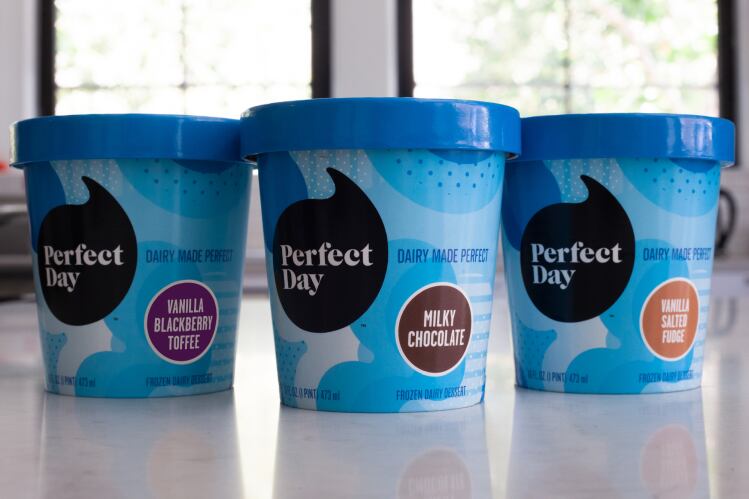At a small gathering in Washington, DC, last week, Quorn’s Chief Scientific Advisor Tim Finnigan explained that consumer interest in and sales of alternatives to animal-based products are growing exponentially, with a “sea of new market entrants” working alongside established brands, like Quorn, to educate consumers about the benefits of their products and improve accessibility.
And while consumer excitement in the space continues to rise for now, Finnigan said that industry players should not take shoppers’ enthusiasm for granted, but rather strive to keep their attention by following five strategies.
Strategy 1: Prioritize flavor and experience
The first of which, he says is like the most obvious, and that is offering alternatives to animal-based products that taste delicious and offer added-value, such as in the form of convenience.
Quorn does this by offering a broad range of products from basic fillets and meatless pieces to seasoned buffalo dippers, patties and cutlets as well as steak-style strips, fishless sticks and more – all made with its unique single-cell mycoprotein derived from fermented fungus.
Each of these includes the brand’s proprietary mycoprotein, which is made by fermenting a specific fungus found in nature and then steaming, chilling and freezing the resulting product to create a meat-like texture similar to chicken.
Strategy 2: Focus on environmental as well as health benefits
The second strategy is to educate consumers simultaneously on the nutritional and environmental benefits of choosing alternatives to animal-based products, Finnigan said.
“We have to talk about the consequences of our dietary choices in terms of the impact they have on the health of our bodies, and the health of the planet. It is no longer appropriate to talk about them separately” given the increasing pressure to feed more people with fewer resources, he said.
He explained that as a fermented food, Quorn has a lower environmental impact than “converting crops into animal protein, which we know is inherently inefficient.”
It also generates a smaller carbon footprint and requires less land and water than livestock, he said, noting that mycoprotein produces 10 times fewer greenhouse gas emissions than cattle and four times fewer than chicken. In addition it uses 20 times less water than raising cattle and six times less water than raising chicken, he said.
Strategy 3: Use science to address consumer concerns
In terms of human nutrition, Finnigan says, companies offering alternatives to animal-based products need to use science to support their claims and help address consumer concerns – which he says is the third of the five principles industry must follow to maintain momentum.
He explained that when mycoprotein was first discovered, the company focused heavily on researching its safety and toxicology to assure regulators that consumers it was safe to eat.
As part of those studies, he added, the company also looked at the organism's nutrition profile and found “all sorts of really interesting observations around appetite and glucose and gut health” because it is not only high in protein, but also in fiber and has no cholesterol.
More recent research conducted with the University of Exeter found that mycoprotein supports muscle growth and recovery following exercise more effectively than protein from cow’s milk, he noted.
Strategies 4 & 5: Increase transparency and place purpose over profits
The last two principles are closely related and include increased transparency about company values and placing more importance on purpose over profits in the future, Finnigan said.
“I see this most acutely within Millennials and Generation Z who are saying, quite simply, business as usual with small adjustments isn’t enough. We need do something different” to address sustainability and health, he said.
For many of them, he added, this means following a plant-based diet.
They also want to support brands that are transparent about how their products are made and the impact they have on the planet and society more broadly beyond economic development, he said.
“This obsession we have with growth at all costs is actually driving these elements of unsustainability that look, at the moment, as if we don’t do something we aren’t going to have a planet to worry about,” he said.
And that is a turnoff for younger shoppers, who would rather support companies with values that align with their own and the long-term success of the planet as a whole, he added.


